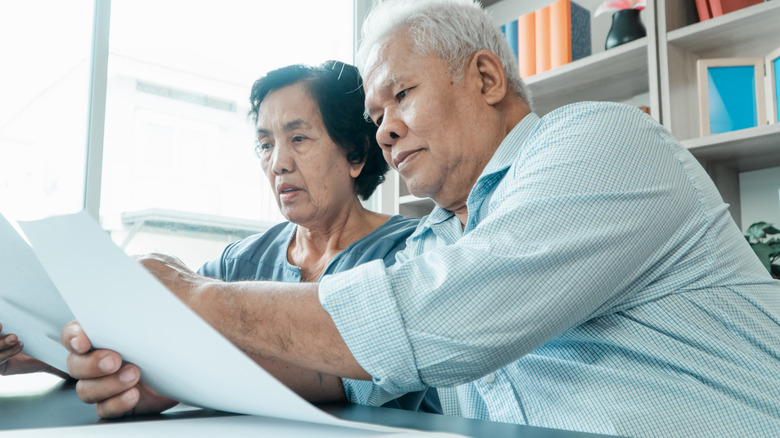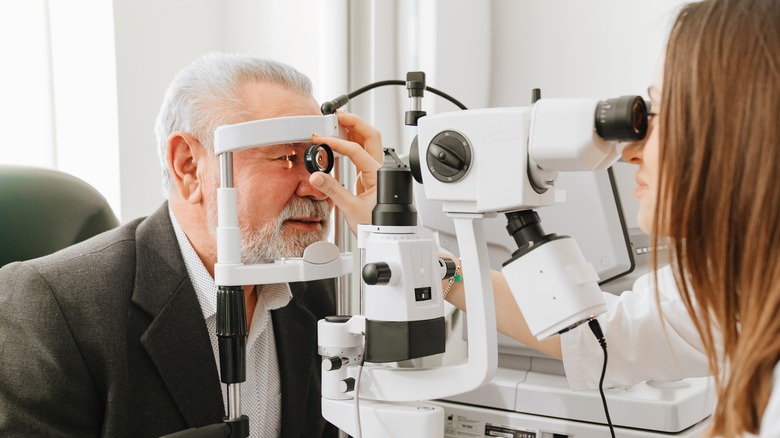Tips For Living With Glaucoma
A glaucoma diagnosis can be scary. But advancements in treatments mean that most cases of glaucoma don't result in blindness, according to the Glaucoma Research Foundation (GRF). While you might need to make adjustments, you can still do the activities you found fulfilling before your diagnosis. That said, there are things you can do that will make living with glaucoma easier.
One of the most important things you can do is take your medication, according to the GRF. You should take it on time every day, setting alarms or reminders if you need to. Let your doctor know if you have any problems with the drugs you're taking, so they can be changed or adjusted. You should also learn everything you can about glaucoma. The more you know about the condition, the easier it will be to anticipate and cope with everyday challenges. Getting involved with a support group is one of the best things you can do because it helps you to remember that you are not alone.
Keep your lifestyle and home in check
Maintaining a healthy lifestyle is key to learning to live with glaucoma. A variety of fruits and vegetables contain vitamins A and C, which are both excellent nutrients for eye health. Lutein and zeaxanthin are also important to vision, and you can get them from red and orange fruits like raspberries and mangoes, per SFGate. Smoking can damage areas of your eyes necessary for vision, so it's best to stop, according to the Food and Drug Administration. Being physically active is important. Talk with your doctor about what's best for you before you start any new fitness routine. Certain exercises, including some yoga stances and strength training movements, can increase the pressure in your eyes.
When it comes to your home, a little rearranging might be in order. You may want to remove area rugs because they are a tripping hazard. To avoid head injuries, always make sure cabinet doors are closed. Installing lighting in darker areas of your home can help you see more clearly. Marking stairs and handrails could help you avoid falls. Staying in touch with your doctor is also important because he or she can provide insight into your particular situation (via GRF).

